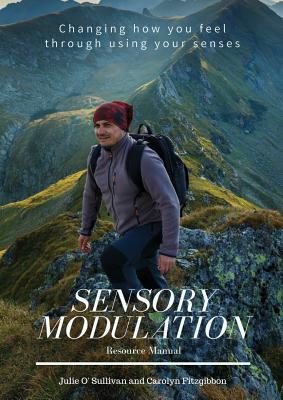Sensory modulation is 'changing how we feel through using our senses'. The senses include touch, movement taste, smell, sight and sound. This sensory input changes the physiology of the body, and in doing so creates a shift in how the person feels.
Sensory modulation is broader than just aiming to feel calm and relaxed. It can also be used to:
-ground: when feeling dissociated, spacey or having difficulty focusing on the present
-soothe: when feeling self-hatred, shame, sad or anxious
-calm: when feeling anxious, scared, angry or agitated
-relax: when the muscles feel tense or the mind feels stressed
-alert: when feeling lethargic, tired or sedated, or having trouble concentrating
-reduce or intensify sensations: when feeling self-hatred or shame or the urge to self-harm
-increase pleasure: when feeling the need for joy in the moment or happy memories from the past
-create a sense of safety: when feeling unsafe, triggered by the current environment or past memories
-self-manage symptoms: when experiencing auditory hallucinations, panic attacks, or insomnia
-manage pain and itch: when chronic pain or itch is an issue
-cope with grief and shock: through soothing the body and mind
-cope with cravings for addictions: through using alternatives to substances
-reminisce: when wanting to improve memory or connect an elderly person to familiar or pleasurable sensations.
Sensory modulation is being increasingly used in health, school and community settings, to support individuals to change their feelings through using sensory input.
This manual provides practical assistance for people to increase their knowledge and skills concerning sensory modulation. This includes:
-understanding the 8 senses.
-explaining how sensory modulation works
-getting started with sensory modulation
-managing specific intense emotions and challenging scenarios
-creating a Sensory Space
-using sensory modulation so that it is Safe, Appropriate, Individualised and Meaningful
-downloadable factsheets and worksheets
